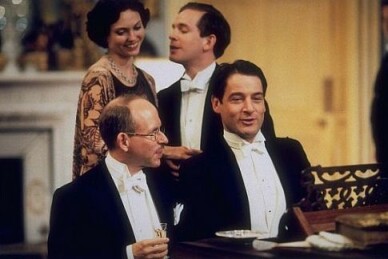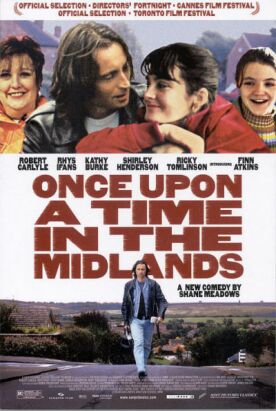Election
Election was directed and co-written by Alexander Payne, the promising
young director of Citizen Ruth. Once again, he shows that he has real
talent in this often hilarious tale of life at George Washington Carver High in
Omaha. Like that other recent success, Rushmore, the film looks at high
school as something of a metaphor for life itself, but it is a much more closely
observed study of high school itself and of its own peculiar idiocy. The
election of the title is for student government president, the most prominent
candidate for which office is a poisonous child called Tracy Flick (Reese
Witherspoon) who has already mastered Clintonian rhetoric and Clintonian
phoniness. She couples assurances that
“I care about
Carver” with pathetic stories of
alleged suffering, as in the case of one student said to be
“alienated from his own
homeroom.”
Tracy’s nemesis is a teacher called
Jim McAllister (Matthew Broderick) who, out of sheer dislike for her
insufferable smarminess encourages a dumb football hero called Paul Metzler
(Chris Klein) to run against her and calls down upon his head her terrible
wrath.
There are two subplots which fit together nicely with the main story. One
involves a former colleague called Dave Novotny (Mark Harelik) who, having had
an affair with Tracy, is given the sack and forced to get out of town, leaving
behind him a wife whom McAllister begins to think will be receptive to the idea
of an affair with him. The other concerns Paul
Metzler’s lesbian sister, Tammy
(Jessica Campbell), who at the last minute jumps into the election campaign as a
third candidate against her own brother and the abominable Tracy, but whose real
purpose is to get herself expelled from George Washington Carver and sent to
Immaculate Heart, a Catholic girls’
school some of whose soccer players she is lusting for. The suppressed
jubilation she displays on being told that she has succeeded in incurring just
this supposed punishment is worthy of
Br’er Rabbit being flung into the
briar patch.
In a way the central episode of the film comes as the candidates are giving
their speeches to an assembly about their plans for GWCHS. As is suggested
above, Tracy’s is an exercise in
falseness and Paul’s in bumbling
stupidity (though equally false), but Tammy soon has the crowd on its feet,
cheering her to the rafters, when she says that her first act as president will
be to abolish assemblies like that which she is addressing, since
“who cares about this stupid election
anyway?” The dangerous moment at which
someone suddenly decides to stop playing the game that everyone finds hellishly
unpleasant but no one knows how to get out of, short of a Dave Novotny-like
cataclysm, is as true an image of revolutionary subversion that has to be
crushed—even if it is at the cost of
Terrible Tracy’s becoming student body
president.
This is all very nicely done, and I even liked the rather disturbing
parallels suggested between Tracy and Mrs Novotny, both of whom use the pose of
moral righteousness as a means of destroying other people for their own
purposes. Indeed, if you include as a third example
Tammy’s machinations to get herself
pitched in among the luscious flesh of the Immaculate Heart, you could argue
that the picture is in essence a
misogynist’s fantasy. More
importantly, however, it ends up being too lacking in nuance or subtlety. For
morality is more than just the game which is played with such skill, in their
different ways, by these scheming women. And to suggest as Payne comes close to
doing that the game is all there is to it is merely nihilistic and thus
unserious, which is as grave a fault in a comedy as in anything else. Oddly the
film is that very rare thing in Hollywood, a nearly-successful satire, but one
which doesn’t quite come off because
it cannot rise above its Hollywood assumptions.
Discover more from James Bowman
Subscribe to get the latest posts to your email.







